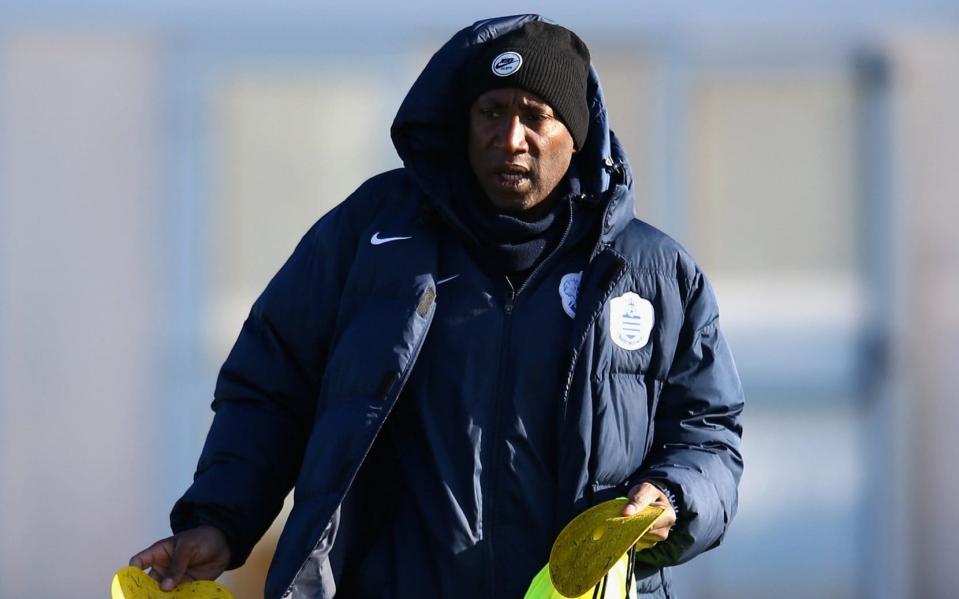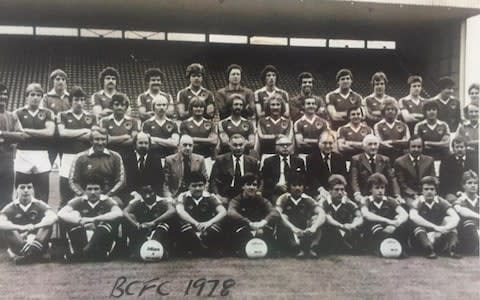Chris Ramsey: 'Some people in football talk in PC terms but are racist in their actions'

“Any resilience I have shown pales into insignificance compared to my parents and the Windrush generation,” says Chris Ramsey, before taking the mobile phone from his pocket and displaying a photograph of his uncle.
“Ben Bousquet,” he says. “He was in a Panorama documentary and was one of the people they filmed looking for a room. They had a sign saying, ‘No dogs, no blacks, no Irish’. My family have always been sticking up for the rights of minorities.”
Ramsey then scrolls through to photographs of his time at Bristol City in the late 1970s (below) - when he was the only black apprentice - and then at Lilleshall when he began qualifying as a coach in the 1990s. He was one of a tiny handful of former black players to follow that route and, at the age now of 56, remains employed in football today as Queens Park Rangers’ technical director.
He describes those other black former team-mates and opponents as a “lost generation” to football and, while well aware that the overt racism which so sullied society has receded, believes that there are now more subtle dangers.
“Here’s a slightly controversial view,” says Ramsey. “Ron Atkinson said what he said. He rightly suffered the consequences. But his actions were far from racist in that he has always been a pioneer of playing black players. His language was one thing. His actions the other.

“We have other people who say all the right things, who say they are diverse, their language is PC, but their actions are actually racist or can be looked at as prejudiced against minorities.
“As a player, you went in with your eyes wide open. I had quite a few fights - on the pitch, in the changing room. Mainly you didn’t get it from your teammates, but sometimes they said things about others. I would always react.”
And what of the fans during a playing career in Bristol, Brighton, Swindon and Southend?
“It could be absolutely diabolical,” he says. “Multiple monkey chants, banana throwing. It was a dark, dark period in English football and society. We had the Brixton Riots. Football is a goldfish bowl of things happening outside. It reflects.”
Ramsey’s outlook upon approaching his coaching career still mirrors his advice to retiring footballers. He got his coaching badges back in 1994, completed two degrees, obtained his Pro-Licence qualification and has taken further courses on subjects ranging from injuries to governance. There would initially still be job applications to non-league clubs that went unacknowledged. Even after being appointed as a regional FA director of coaching and then England Under-20s coach, the need for work took him to Charleston Battery in South Carolina - “the last place to abolish slavery” - before a hugely successful decade with Tottenham’s academy and then a spell as a Premier League manager among other jobs at QPR.
“I was a low profile player so I made myself ultra-qualified,” he says. “It has taken me a long time to get opportunities that I know other people might have got before. It’s hard to stay in football 40 years for anybody and there are other people more hard done by than me. You see high-profile people walk into jobs and wonder why other high-profile people with an equal level of success don’t.
“My advice always is to get qualified to the point that you need to. The situation was a lot worse than it is now but, let’s be honest, in a country like England, which is diverse and quite liberal in our views, we should be a lot further on.”

